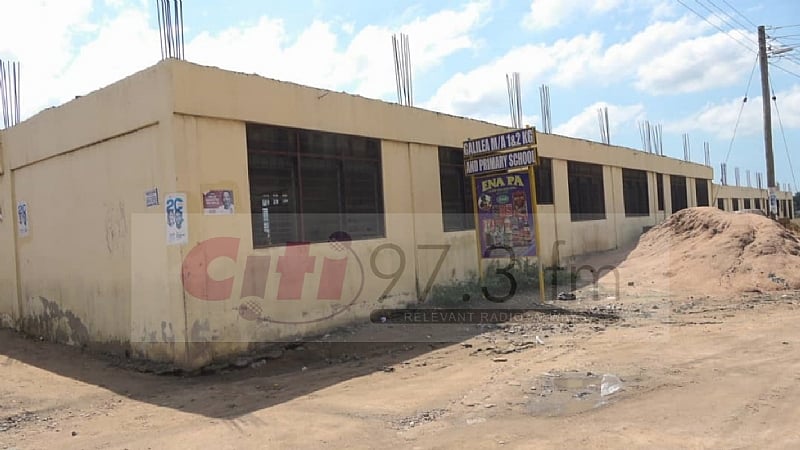In the Ga South Municipality, a significant disruption occurred at the Galilea M/A Primary School when over a thousand students were expelled from their classrooms. This situation arose due to Geo Anointing Construction Limited’s frustrations with the Ghana Education Trust Fund (GETFund) for failing to fulfill payment obligations related to a construction project that has been pending since 2017. The contractor’s decision to lock the school highlighted a larger issue of delayed payments affecting educational infrastructure. The Municipal Chief Executive of Ga South, Joseph Nyani, stepped in at a critical moment to prevent further escalation. He managed to negotiate a two-week stay on the contractor’s actions, giving some hope that the matter could be resolved satisfactorily.
Christopher Newman, the Public Relations Officer for Geo Anointing Construction Limited, expressed deep dissatisfaction with the lack of communication and promptness from GETFund regarding the outstanding payments. He noted that the contractor’s financial difficulties were dire enough that the bank had confiscated several properties due to inability to repay loans taken out for the execution of the school construction project. Newman’s statements reflect the contractor’s precarious financial situation, exacerbated by the lengthy wait for GETFund’s payments.
The breakdown of communication between GETFund and Geo Anointing Construction Limited is deeply concerning. Newman emphasized that despite numerous attempts to reach GETFund to resolve the financial issues, there has been no productive outcome. This failure to address the outstanding debts resulted in the contractor’s drastic action of locking the school, a move faced with significant opposition from the teaching staff. The teachers’ outcry underscored the negative impact on the students’ education, illustrating the broader consequences of bureaucratic delays and financial mismanagement.
The Municipal Chief Executive’s intervention was pivotal in staving off the complete closure of Galilea M/A Primary School. His promise that the situation would be addressed within two weeks provided a temporary reprieve but raised questions about the sustainability of such resolutions. While immediate tensions were eased, the underlying issue of delayed payments remained unresolved. This incident emphasizes the critical role that local authorities must play in managing relationships between education contractors and funding agencies.
The implications of this situation extend beyond the immediate crisis at Galilea M/A Primary School. It reflects systemic challenges within educational funding in the region, where construction projects suffer from chronic underfunding and mismanagement. Delays in payment not only threaten educational access for students but also jeopardize the livelihoods of contractors who depend on timely disbursements. It raises a broader concern about the government’s ability to uphold its commitments to improve educational infrastructure, particularly in vulnerable communities.
Ultimately, the dilemma at Galilea M/A Primary School encapsulates significant issues surrounding educational funding in Ghana. While the intervention by local authorities offers a temporary solution, the urgent need for systemic reform in how educational projects are financed and managed is evident. To prevent similar occurrences in the future, it is crucial for GETFund and other stakeholders to establish transparent communication and timely payment processes, thereby ensuring that educational institutions can operate smoothly and effectively support the learning needs of their communities.














